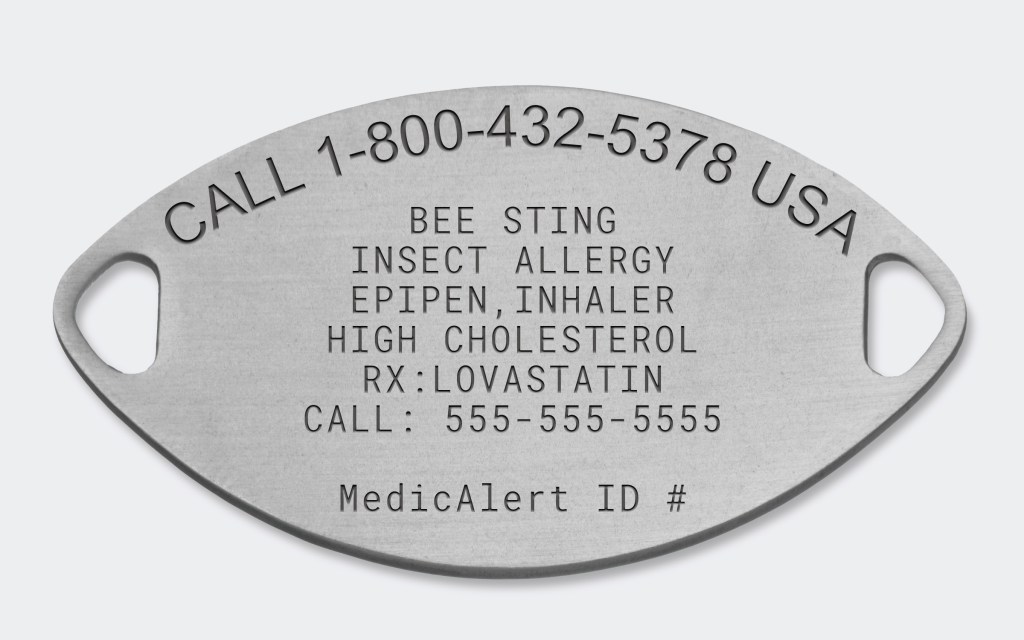What to engrave on MedicAlert medical IDs for statins:
MedicAlert offers free custom engraving on all our statins bracelets and medical ID products. Engravings on medical IDs for statins should include any critical medical information that can protect and save lives in an accident or medical emergency, for example:
- Statins, other medications
- Implanted devices such as pacemakers or stents
- Conditions
- Drug interactions (NSAIDs)
- Physician and emergency contact information
- Any other critical medical information that needs to be communicated to first responders

Sample engraving. Consult our team if you need help engraving your medical ID for statins.












